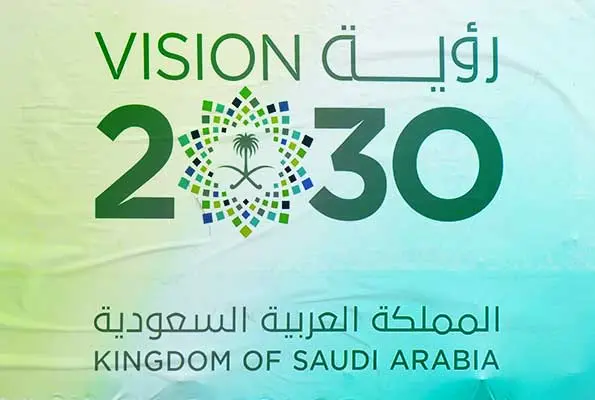New data projects that the government is spearheading should propel Saudi Arabia’s hospitality revenue to expand at a compound annual growth rate of 7.5% between 2023 and 2028.
The Kingdom’s “Vision 2030” plan is supporting this rise, which is in line with the Gulf Cooperation Council (GCC) average, according to recent research from investment banking advisory firm Alpen Capital.
The hospitality sector in Saudi Arabia is likely to grow as a result of strong economic recovery, booming tourism, and government initiatives to lessen dependency on hydrocarbon earnings, according to Sameena Ahmed, managing director at Alpen Capital.
According to Alpen Capital’s analysis, Gulf region’s hospitality industry will generate revenue between 2023 and 2028 that will increase at a compound annual growth rate of 7.5%, or almost USD 48.1 billion.
Economic prosperity, a rise in visitor numbers, several mega-events, as well as incentives, conferences, and exhibitions held in conjunction with local athletic events, are the main drivers of this growth.
Enhancing Key Metrics
Over the next five years, it is anticipated that the industry’s primary operating metrics, such as occupancy rate, average daily rate, and revenue per available room, will improve.
The predicted growth rate for the occupancy rate is 64.6% in 2023 to 69.3% in 2028, with a compound annual growth rate (CAGR) of 1.9% for the ADR. Over the same time frame, a CAGR of 3.3% is anticipated for RevPAR (hotel industry acronym standing for revenue per available room).
The General Authority of Civil Aviation (GACA) president of Saudi Arabia, Abdulaziz Al-Duailej, declared a 20% rise in passenger travel in the Kingdom in 2024. This increase comes after a record-breaking 26% spike in passenger volume in 2023, which saw 111 million passengers overall.
The rise is a result of Saudi Arabia’s extensive aviation connectivity initiative, which added 148 new international destinations and 48% more connectivity in 2023. In addition, since the pandemic, low-cost carriers have greatly expanded their share of the global market.
Al-Duailej also listed the industry’s main goals, which include reaching over 250 destinations, growing cargo capacity to 4.5 million tons yearly, and reaching 330 million passengers. To create an inviting investment climate for the industry and unleash substantial economic potential, he emphasised the implementation of multiple economic reforms.
GCC’s Impact On Tourism
According to the research, the GCC (Gulf Cooperation Council) is successfully organising important MICE, cultural, and athletic events, which is strengthening its position as a key global tourism destination. Millions of tourists are predicted to attend these events, which will further support the expansion of the hospitality sector.
To increase tourism, the area has also instituted several liberalised policies, including unified GCC visas, Dubai’s five-year multiple-entry visa, and Saudi Arabia’s fast e-visa possibilities. Additionally anticipated to boost tourism and raise demand for hospitality services are investments in transportation infrastructure.
Geopolitical tensions and uncertainty in the world economy, however, provide difficulties for the industry. Monetary policies and inflation could undermine consumer confidence and cause them to spend less on foreign travel. Furthermore, a major obstacle that affects recruiting and retaining qualified experts is the lack of skilled individuals.
The research highlights the industry’s adoption of digitalisation, whereby operators are utilising technologies such as cloud platforms, mobile apps, artificial intelligence, and machine learning to improve consumer engagement and customise experiences.
In response to the growing demand for responsible travel, the area is also implementing eco-friendly procedures and conservation programmes.
Plans For Expansion
Not only that, but the world’s largest real estate company, Knight Frank, predicts that Saudi Arabia will build 320,000 additional hotel rooms by 2030, with 67% of those rooms falling into the “upscale” or “luxury” categories. With 150 million local and foreign visitors anticipated by 2030, this action attempts to accommodate the anticipated spike in tourism.
Following its successful bid to host the 2030 World Expo, Riyadh is set to receive an estimated USD 94.6 billion in economic benefits, with an estimated 40 million visitors expected over the six-month show. Given that four-five-star hotels often need one to two employees per room, this emphasises the importance of providing enough lodging for hotel staff.
The projected growth in Saudi Arabia’s hospitality revenue and the GCC hospitality industry as a whole demonstrates the positive impact of government initiatives and economic reforms. The anticipated improvements in key operating metrics, coupled with substantial investments in infrastructure, indicate a promising outlook for the industry.
Despite challenges such as geopolitical tensions and skilled labour shortages, the adoption of digitalisation and sustainability measures is expected to enhance consumer experiences and contribute to responsible travel. The ambitious plans for expansion, including the construction of additional hotel rooms and hosting major events like the 2030
World Expo, reflects the proactive approach to accommodating the expected surge in tourism.
This comprehensive strategy underscores the significant economic potential of the hospitality sector in Saudi Arabia and the broader GCC region.


